Meeting No. 11
Systematic uncertainty
Let's discuss systematic uncertainties. As we discussed
last week, not all of them effect the proton charge radius.
Here are my notes on the contributions to the systematic
uncertainty. I believe, that majority of them do belong
in the final fit.
SystematicUncertainties.pdf
Determination of the proton radius:
Last week I have shown you the prodecude for calculating
the radius. I also calculated the model dependend uncertainty
using simple MC simulation. As an alternative to this procedure,
Harald suggested to use error propagation in order to obtain
this result analytically. I have done this, but this is not
simple. When looking at the functions, we can not use the derivative
of the FF to get out the error of the radius, because then
all the dependencies cancel out. One needs to check the FF
it self. Here I have the Q2 dependence of points. Hence,
I get out the uncertainty for each Q2 point. Considering
that the last point contributes most, the errors are comparable.
FitFormFactorsEducated2.pdf
Here are my notes on the calculation of the Radius:
NotesOnRadius.pdf
The Vertex correction:
Last week I reported on the effects of the Vertex correction. As discussed
the consistent correction works for the 495MeV and 330MeV settings. However,
as shown on the plot below, it does not work for the last setting. Here,
approx 2% are missing. If I normalize data to the elastic setting,
the remaining points are too high - but consistent. This is disturbing.
I revisited all my steps and I can not find a step, where I could
bring in sich difference.
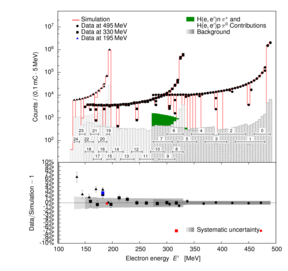



The External Radiative Correction:
Now I have received already several times questions about external corrections.
Hence, I checked their contribution to the result. Interrestingly, their effect
is not negligible and their E' dependece is very similar to the one
of the vertex corrections. Hence, a mistake here could also bring the missing
correction for the 195MeV setting. To be happy the correction would have to
be a bit larget. (The cyan points show result, when I change the density for
+10%. magenta show results, when I leave out the contributions in the
target walls. )

Optics:
The SVD algorithm is now done for the 195MeV and 360MeV settings. Now I need
to determine the matrices for A and B for the last 495MeV setting. Here are the results
for the 360MeV and 195MeV settings:
Spectrometer A at 360MeV:
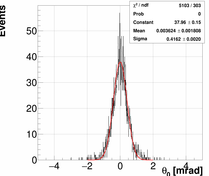




Spectrometer B at 360MeV:

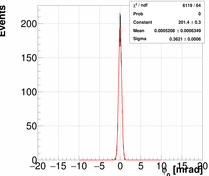
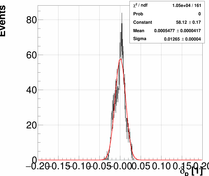


Spectrometer B at 195MeV:



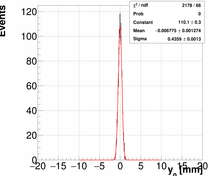
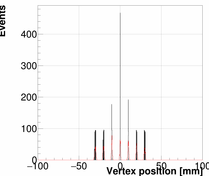
Spectrometer A at 195MeV:





Animation:
Here is the animation which shows, how we peal off the matrix elements for the delta variable in spectrometer A at 360MeV.
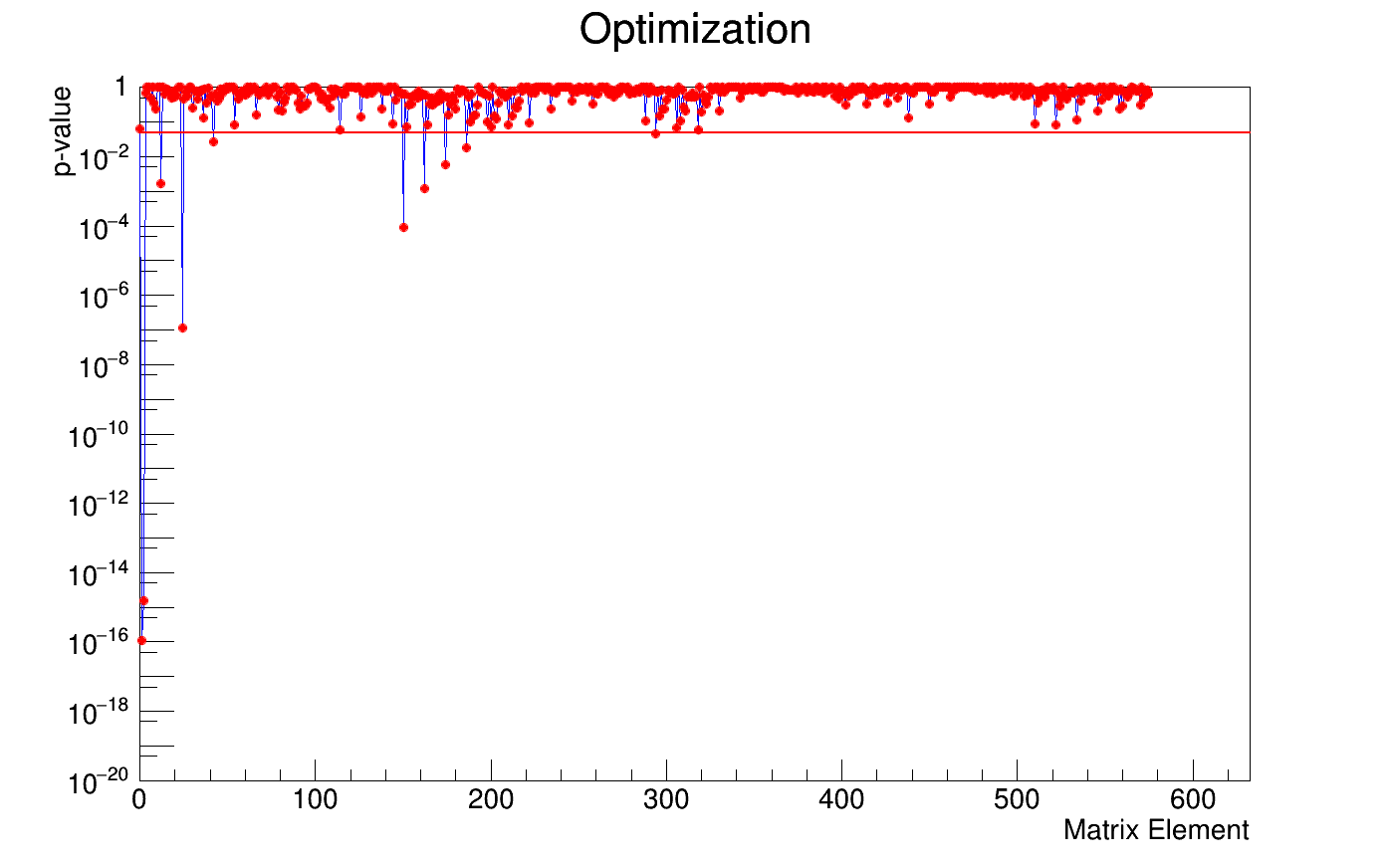
Last modified 20.5.2016

























